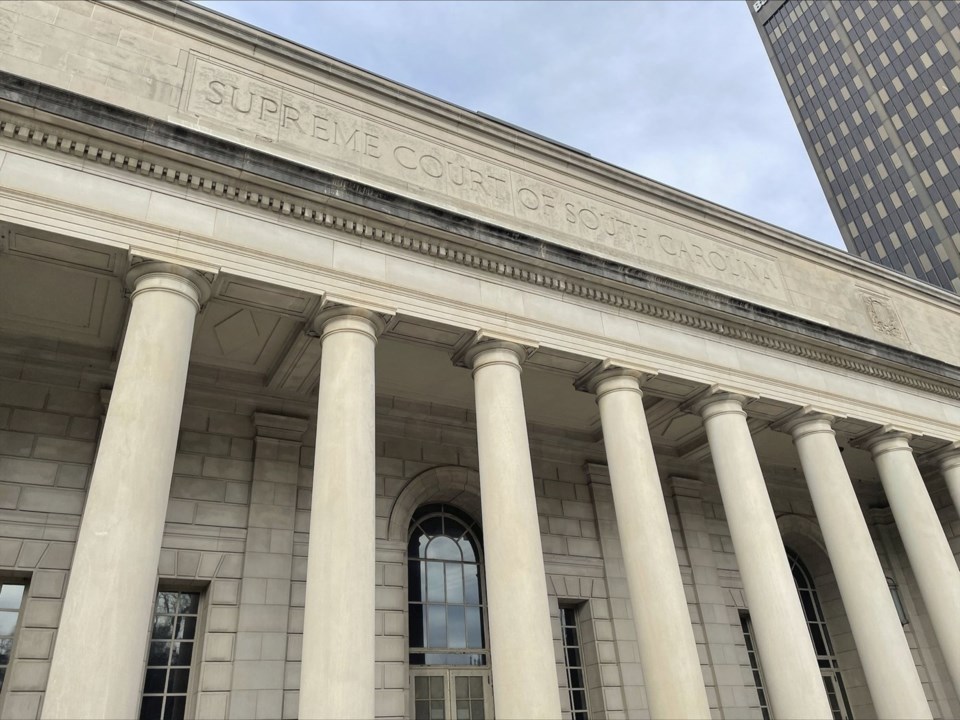COLUMBIA, S.C. (AP) — The South Carolina ruled Wednesday the state can keep banning abortions around six weeks after conception by agreeing with the earliest interpretation offered of when a heartbeat starts.
The justices unanimously ruled that while the medical language in the was vague, supporters and opponents of the law all seemed to think it banned abortions after six weeks until Planned Parenthood lost its challenge to the entire law two years ago.
The law says abortions cannot be performed after an ultrasound can detect “cardiac activity, or the steady and repetitive rhythmic contraction of the fetal heart, within the gestational sac.”
The that is the moment when an ultrasound detects cardiac activity. Planned Parenthood said the words after the “or” mean the ban should only start after the major parts of the heart come together and “repetitive rhythmic contraction” begins, which is often around nine weeks.
The justices acknowledged the medical imprecision of South Carolina's heartbeat provision, which is similar to language in the laws in several other states. But they said this drove them to study the intent of the General Assembly, which left no doubt that lawmakers on both sides of the issue saw it as a six-week ban.
“We could find not one instance during the entire 2023 legislative session in which anyone connected in any way to the General Assembly framed the Act as banning abortion after approximately nine weeks,” Associate Justice John Few wrote in the .
The justices said opponents of the law used six weeks when proposing amendments on when child support payments should start that were voted down.
And the Supreme Court pointed out Planned Parenthood used the phrase “six-week ban” more than 300 times in previous filings, as South Carolina's 2021 ban at cardiac activity in a 3-2 decision in 2023 and then months later after the General Assembly tweaked the law and the court's only woman who overturned the ban had to retire because of her age.
Since the U.S. Supreme Court and ended a nationwide right to abortion in 2022, most Republican-controlled states have begun enforcing new bans or restrictions while most Democrat-dominated ones have sought to protect abortion access.
Currently, 12 states enforce bans on abortion at all stages of pregnancy, with limited exceptions. South Carolina and three others prohibit abortions at or about six weeks into pregnancy -- often before women realize they’re pregnant.
The fight over South Carolina’s abortion law is not over. A federal judge this month allowed to continue a lawsuit by five OB-GYN doctors who said they can't properly treat patients because they fear they could be charged with crimes due to the vague definitions of heartbeat and the exceptions allowing abortions only when a fatal fetal anomaly exists or a woman’s life is at risk.
South Carolina’s law also allows abortions for up to 12 weeks after conception if the pregnancy was caused by rape or incest.
Republican South Carolina Gov. Henry McMaster said the state will continue to fight as long as the law is challenged.
“Today’s ruling is another clear and decisive victory that will ensure the lives of countless unborn children remain protected and that South Carolina continues to lead the charge in defending the sanctity of life,” he said in a statement.
Planned Parenthood also vowed to keep challenging the ban, saying it harms women and damages the state's healthcare system.
“Justice did not prevail today, and the people of South Carolina are paying the price. People have been forced to carry pregnancies against their will, suffered life-threatening infections, and died as a direct result of this abortion ban,” the organization's statement said.
Jeffrey Collins, The Associated Press



